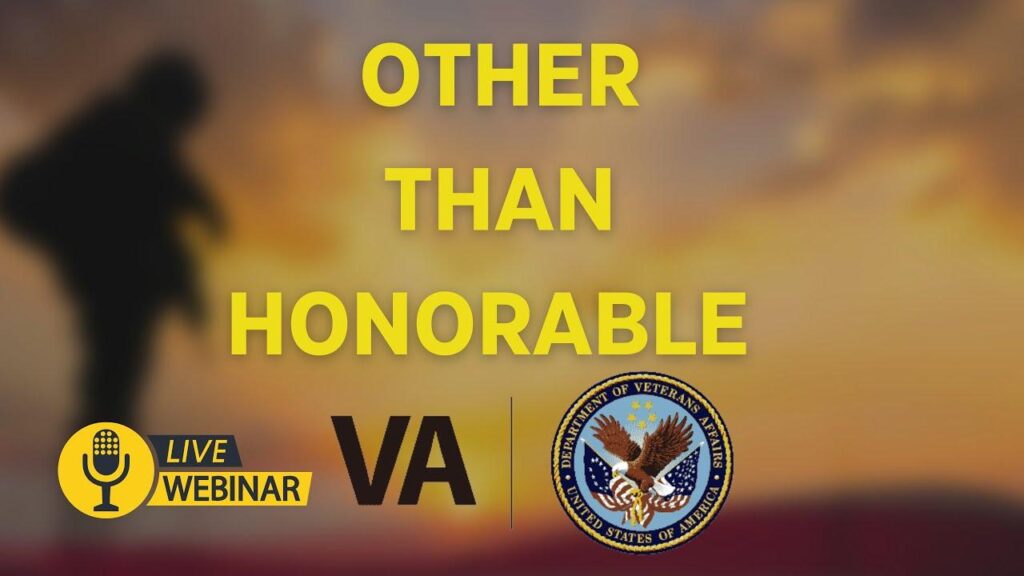In a groundbreaking effort to address the plight of marginalized veterans, a proposed program by the Department of Veterans Affairs (VA) aims to extend legal aid to those who were discharged with less-than-honorable statuses. This initiative seeks to provide crucial support and resources for veterans who have faced challenges accessing the benefits and services they deserve.
Eligibility Criteria for Legal Aid Program
Some Veterans with Other-than-Honorable Discharges would be eligible to receive legal aid under the proposed VA program. This new initiative aims to provide assistance to veterans who have been previously denied support due to their discharge status. The eligibility criteria for this legal aid program include:
- Having served in the military
- Receiving an other-than-honorable discharge
- Experiencing challenges accessing VA benefits or services
Veterans who meet these criteria would have the opportunity to receive legal support to appeal their discharge status, access VA benefits, and navigate the complex process of seeking help and resources. This program reflects the VA’s commitment to supporting all veterans, regardless of their discharge status, and ensuring they receive the assistance they deserve.
Importance of Providing Support to Veterans with Other-than-Honorable Discharges
Some veterans with other-than-honorable discharges may soon be eligible for legal aid under a proposed program by the Department of Veterans Affairs. This initiative aims to provide support to those who may have been unfairly or unjustly discharged from the military, helping them access the benefits and resources they are entitled to.
This program could make a significant impact on the lives of these veterans, offering them a chance to receive the help and assistance they need to reintegrate into civilian life successfully. By providing legal aid and support, the VA can ensure that all veterans, regardless of their discharge status, have access to the benefits and services that they deserve. This initiative emphasizes the importance of taking care of all veterans and ensuring they receive the help they need to thrive after their military service.
Challenges Faced by Veterans with Less-than-Honorable Discharges
Some veterans who have received less-than-honorable discharges face a multitude of challenges when trying to access benefits and services from the Department of Veterans Affairs (VA). These challenges can include:
- Limited access to healthcare
- Difficulty in obtaining education benefits
- Ineligibility for housing assistance programs
- Barriers to employment opportunities
The proposed VA program aims to provide legal aid to veterans with other-than-honorable discharges, addressing these challenges and helping them navigate the complexities of their discharge status. By offering legal assistance, veterans may have the opportunity to upgrade their discharges and access the benefits and services they are entitled to. This program can make a significant impact on the lives of these veterans, providing them with the support they need to move forward after their military service.
Potential Impact of Proposed VA Program on Veterans Well-being
Under the proposed VA program, some veterans with other-than-honorable discharges would receive legal aid to improve their well-being and access to benefits. This initiative aims to support those who may have been unfairly or incorrectly discharged and are now facing challenges in receiving the assistance they deserve.
The program would provide legal representation to help these veterans upgrade their discharge status, allowing them to access crucial services such as mental health care, housing assistance, and job training. By removing barriers to benefits, the VA program could significantly improve the overall well-being and quality of life for these veterans who have served our country.
Insights and Conclusions
As the proposed VA program aims to provide legal aid to veterans with other-than-honorable discharges, it offers a glimmer of hope for those who have served our country and who are in need of support. By addressing the barriers faced by these veterans, we can work towards a more inclusive and compassionate system that recognizes and honors their service. With greater access to legal assistance, these veterans may find a pathway towards a brighter future. Let us continue to advocate for the well-being of all those who have served, regardless of their discharge status.


